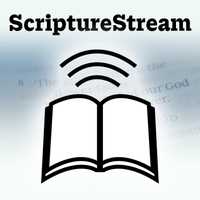- Context of John 3
- Signs led to belief (John 20:30-31
- Some belief was corrupt (John 2:24-25
- Some belief, while not necessarily corrupt, included a misunderstanding of the qualifications for citizenship in the coming kingdom: the Jews thought that because they were Jews they would automatically become citizens of the kingdom (Matthew 3:2-9.
- An exposition of John 3:
- John 3:1-2
- John 3:3: Jesus answered with qualifications for entering the kingdom.
- John 3:5-8: Jesus expounds on the conditions.
- John 3:7-8: There is a different way to determine kingdom citizenship.
- John 3:10-21: Jesus drives home the point.
- John 3:10-12: a rebuke
- John 3:13: giving credentials
- John 3:14-15: another explanation that there is more to inheriting the kingdom than just being a Jew: “whoever believes”
- John 3:16-21: another explanation
- “believes” 4 times: not just being a Jew
- “whoever (world)” 6 times: not just Jews
- About belief
- Belief cannot happen without the Word.
- Belief is brought by the Spirit.
- The Spirit uses the Word. John 6:63
- Some belief will not save (John 8:30-31
- Belief must be accompanied by works.
- James 2:14-26
- Romans 3:28 - the difference between sufficient and necessary
- Belief is not all that is necessary to be saved
- e.g. repentance (Matthew 3
- e.g. confession (John 12
- Immersion (“baptism”) in water: John 3
- The “born of flesh” refers to his literal birth, and emphasizes his ethnicity and stands in contrast to “born of the spirit.”
- Some people (“Christians”): “But baptism is not necessary because it is not mentioned in John 3:16”:
- Neither are confessing and repenting mentioned. Does this mean they are unnecessary (John 3:22-26?
- Mark 16:16 - statement
- Matthew 28:19 - command
- Acts 22:16 - example
- Romans 6:1-7 - necessary inference
- Belief cannot happen without the Word.
For further study, see also:
Questions or comments? Join our Discord server for further study.
